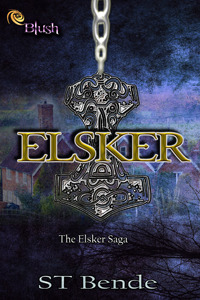"Elevator buttons and morning stares
Stranger’s silence makes me want to take the stairs"
I couldn't resist starting with a little Taylor, partly
because every day should have some Swifty lyrics in them and partly because
it’s the perfect intro to today’s topic: the elevator pitch.
When I was querying, I was somewhat horrified that I needed
to condense my entire novel into three paragraphs that would have an agent
salivating. THREE tiny paragraphs to sell a whole novel? Can’t be done, can’t be done, can’t… fine,
I’ll do it. But I won’t be happy about
it.
If you feel the same way, you’re not going to like this
post. Because I’m here to tell you you’ll need to go even further. You should
also be able to sum up your novel in one sentence.
Feel free to mount the same argument that I did with respect
to elevator pitches. What is the statistical probability that I will be:
A. Riding
an elevator with an agent to begin with
B. Able
to determine in the 47 seconds it takes to get from the lobby to the 8th
floor that said person is a literary agent representing the exact type of
fiction I am writing
C. Able
to work up the nerve to discuss my book with this unicorn of a mystical being.
Well, okay, if you attend the odd writer’s conference, it's
not entirely improbable; however, it also isn’t exactly likely. But that doesn’t matter. Because nine times
out of ten you won’t need your elevator pitch to land your agent. You can have the three whole paragraphs for
that. It’s the part that comes next that
requires the logline.
You will now need to be able to discuss your book in one
sentence each time you talk to: every one of the people you brag to about
landing an agent to (who will then follow up with “Cool. So what’s your book
about?”), every fellow writer you encounter at a conference, every book store
owner you approach about hosting your book signings, every teacher you contact
about an author visit, every blogger you want to host you on a blog tour, and EVERY SINGLE possible potential reader that you
encounter in the world from the time you sign a book contract to the time your
book has been on shelves for years.
So what is an elevator pitch?
Let’s consider some movies for easy examples (just envision an eager screenwriter facing executives and saying “Okay, picture this!”, probably with lots of enthusiastic hand gestures included):
“Eight-year-old boy is accidentally left behind when his
family goes on vacation and must defend his house from a pair of dim-witted
thieves.”
“The high school jock, the princess, the goth, the nerd, and the bad boy are locked in all-day detention together.”
“A high-society girl and a penniless dreamer fall
desperately into forbidden love aboard the about-to-sink Titanic.”
Any one of those lines conjures an instant image of the tone
and possibilities. Note that I don’t have to tell you what actually
happens in any of these stories- I really just have to give you the set-up and
your imagination is off and running.
That’s an elevator pitch. That’s what will get readers to the bookstore
(versus you rambling on and on about how it’s “sort of like The Little Mermaid
but without the prince and, oh yeah, it doesn’t take place in the water, and
the main character is a selkie, not a mermaid but..”)
When should you write your logline? Right now. If you can’t
come up with one for your novel, you may not yet know what the heart of your
story is and it would be a good exercise at this point in the writing to stop
and boil it down. It can also help to inform your revisions if you know what the
essence of your book is before you go all Edward Scissorhands on it. Write your line down, tweak it, memorize it,
and then practice it on every person who asks what you are working on. If they start smiling and nodding along, you've got it!
Until that point, consider the stairs…

















.jpg)






